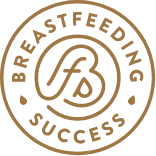By Ali Weatherford
An official Baby-Friendly hospital is one that has been accredited by Baby-Friendly USA (BFUSA). The hospital has to meet certain standards to get this designation, and most of those are related to the promotion and support of breastfeeding and the removal of breast milk substitute (formula) marketing.
The Baby-Friendly Hospital Initiative (BFHI) is a global program started in 1991 by the World Health Organization and the United Nations Children’s Fund (UNICEF) to help increase breastfeeding rates around the world and discourage the use of breast milk substitutes which were leading to malnutrition, illness, and even death in children especially in low resource areas.
The BFHI has been successful in increasing breastfeeding rates around the world. In the United States, there are now more than 600 Baby-Friendly hospitals found in all 50 states.
There are also hospitals who don’t officially have this designation, but might be working towards it. There are also statewide or more local organizations that offer hospital accreditations that are similar, such as the Texas Ten Step Program.
There is no doubt that these kinds of programs have encouraged changes that have been positive overall. It’s important that all facilities begin to incorporate these practices for the health of all babies and families. Some examples of policies and practices that are required for Baby-Friendly accreditation include:
- Educate families about breastfeeding.
- Facilitate immediate skin-to-skin contact after birth.
- Facilitate early initiation of breastfeeding right after birth.
- Support breastfeeding throughout their stay.
- Help manage common breastfeeding difficulties.
- Do not provide breastfed newborns with any other food or fluids other than breast milk.
- Enable mothers and babies to stay together in the same room at all times.
- Educate families about the risks of using bottles, artificial nipples, and pacifiers too soon.
What does this mean for families?
If you are having your baby in a Baby-Friendly facility, you should expect an environment that provides support, encouragement, and education for breastfeeding. You should expect them to support and encourage practices that keep you and your baby in close contact. You should not see any marketing of breast milk substitutes, or be offered samples, gifts, or coupons from formula companies. A Baby-Friendly facility should never feed your baby formula or anything other than breast milk without your permission or medical necessity.
The point is to provide a very natural and family-centered environment. It should be a more hands-off approach than what most hospitals were doing before these initiatives, when babies were wrapped up and taken away from their mothers for long periods of time. Babies were given formula without consent and encouraged to use pacifiers from the first day. It should be a much gentler environment where you are either left to bond and feed your baby with minimal interruption, or offered guidance and support for your family bonding and breastfeeding when needed.
What this should NOT mean for families
The intention is to make things better and easier for a new family’s transition while also offering information and support. This is usually what happens. Unfortunately that’s not always the case.
If your choice is not to breastfeed, you might worry that you will feel unsupported or even shamed in a Baby-Friendly facility. It’s important to recognize a couple of things if you are feeling this way:
- Try not to take it personally: Their job requirement is to provide you with information and support for breastfeeding. They have to. This is a critical piece to meeting the standards for their designation as a Baby-Friendly hospital. If they don’t do this, they can not be accredited. It’s most likely that they are not judging you to be a bad parent. They are just doing their jobs!
- Be tolerant: You might have to tolerate some amount of breastfeeding education and support, EVEN IF you don’t think you’ll need it. It’s important to be patient and respectful if you are choosing not to accept the support, especially if the person doing their job is kind and respectful. Understanding that they are just following the rules of their facility might help.
- Respectful requests: After hearing the information that is offered, you may want to opt out of breastfeeding. If that’s the case, it’s always best to respectfully state your intentions. “Thank you for the information and the offer of help. I understand that there are benefits to breastfeeding, but I am choosing to use formula and a bottle to feed my baby. Can you please help me get set up with that?” This shows them that they did their job by helping you understand the benefits of breastfeeding, but that you are making a different decision anyway. You are also telling them that you need and want their help, because you want to do a good job.
Once you have made your intentions and needs clear, you will hopefully receive the support and information that you need to follow your plan. There is some important and helpful information that they should be able to offer related to formula and bottle feeding. There are best practices that are good to know about, and it is also their job to help you in this way.
If you have been tolerant and listened, and then made your respectful request, you should expect a positive response, reassurance and guidance. If you feel like you are being continually pushed or questioned or if help is being denied to you, it’s important to make a complaint. That is not the behavior that you should expect or tolerate at a Baby-Friendly facility. According to BFUSA, “Baby-Friendly designated hospitals are expected to treat all mothers with dignity and respect regardless of their infant feeding decision.”
